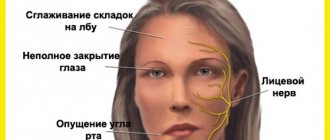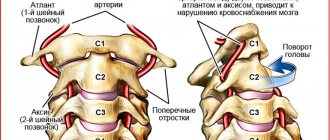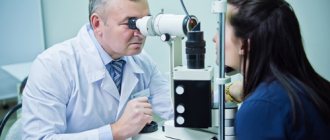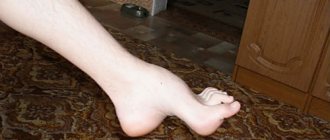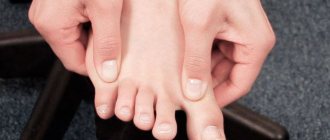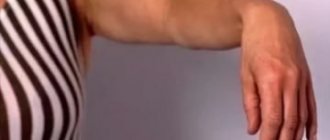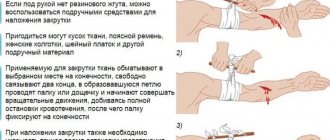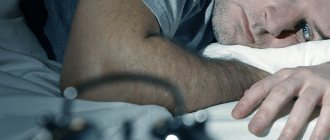Neuritis is an inflammatory process that occurs in peripheral nerves. The reasons for it can be very diverse.
Our expert in this field:
Vasinkina Inna Yurievna
Neurologist
Call the doctor Reviews about the doctor
Depending on the function performed, nerve fibers can be sensory or motor. There are those that are responsible for autonomic functions: regulation of body temperature, blood pressure, functioning of internal organs, frequency and strength of heart contractions, secretion of sweat, saliva, etc. Many nerves in the human body are mixed, that is, they contain fibers of different types. During the inflammatory process, their functions are disrupted.
Types of neuritis
There are different classifications of this condition.
Depending on the number of nerves damaged:
- Mononeuritis is an inflammatory process in a single nerve.
- Polyneuritis is an inflammatory process in many peripheral nerves.
- Plexitis is inflammation of the nerve plexus.
- Radiculitis is a lesion of the nerve roots.
Depending on which nerve is involved in the inflammatory process, there are such varieties as neuritis of the femoral, facial, radial, median, ulnar, peroneal, optic, brachial nerve, etc.
If left untreated, neuritis can lead to serious neurological problems over time, such as impairment (paresis) and complete loss (paralysis) of movement. We advise you not to delay and contact a neurology clinic.
We will call you back, leave your phone number
Message sent!
expect a call, we will contact you shortly
Symptoms
Various symptoms indicate that you have neuritis, which is inflammation of the nerve or inflammation of the peripheral nervous system in general.
Signs of neuritis vary depending on the nerves that are affected. Most often, the patient experiences pain, tingling, burning, loss of sensitivity, loss of reflexes, and paralysis. If the motor nerves are inflamed, symptoms can range from slight loss of muscle tone to paralysis with muscle wasting.
Treatment is aimed primarily at determining the underlying cause of neuritis, because neuritis is considered a condition that is the result of other disorders, that is, it is not a disease, but a consequence/manifestation of a disease.
Certain types of neuritis:
- Axial (parenchymal). First of all, damage occurs to the axial cylinders - the processes of nerve cells that form the basis of nerve fibers, as well as their myelin sheaths.
- Vegetative. First of all, the nerve fibers that provide autonomic functions are damaged.
- Hypertrophic (Dejerine-Sotta). An inherited disease that usually progresses over time. The nerve fiber sheath grows and compresses the neuron process. It gradually collapses and ceases to perform its functions. Gradually, the patient develops movement and sensitivity disorders.
- Gombo. The nerve sheath disintegrates in certain areas, but the neuron processes are not damaged.
- Interstitial. Inflammation mainly affects the connective tissue within the nerve fiber. Typically, this form of the disease develops as a result of autoimmune processes.
- False optic neuritis. A congenital malformation that may resemble an inflammatory process with its symptoms.
- Cochlear. The inflammatory process occurs in the auditory nerve. At the same time, hearing decreases, the patient complains of tinnitus.
- Rossolimo neuritis. A type of hypertrophic form of the disease. Occurs in children and has a recurrent course.
Treatment of neuritis
Despite the large number of different types of neuritis, they are treated in approximately the same way. Usually the doctor prescribes:
- B vitamins , which improve the functioning of the nervous system.
- Drugs that improve blood flow in small vessels.
- Nootropics are drugs that improve metabolic processes and neuronal function.
- Adaptogens are drugs that tone the body and increase defenses.
- Painkillers .
- Calming agents.
- Physiotherapy: electrophoresis, pulsed currents, UHF therapy.
- If necessary , if the inflammatory process is caused by pathogenic bacteria or viruses, the doctor prescribes antibiotics and antiviral agents.
You should not self-medicate. Without an examination by a neurologist and proper diagnosis, you cannot know exactly what is causing the symptoms that bother you. This means that measures taken independently will most likely be ineffective and may even cause harm. Consult a specialist. Make an appointment with a neurologist at our clinic
We will call you back, leave your phone number
Message sent!
expect a call, we will contact you shortly
Neuritis is manifested by two main symptoms: pain and dysfunction of the affected nerve: deterioration or complete loss of sensitivity, movements, autonomic functions (sweating and salivation, vascular reactions, etc.).
Some nerves in the human body perform specific functions. For example, the visual one provides vision, the auditory one provides hearing. With the development of inflammation, these functions also deteriorate.
Sensitivity disorder:
- decrease (in severe cases - complete loss) of skin sensitivity;
- numbness;
- paresthesia (unusual, unpleasant sensations): tingling, sensation as if “goosebumps are crawling” on the skin.
Movement disorder:
- partial loss of movement (in severe cases - paralysis of the corresponding muscle group);
- decrease (in severe cases - complete loss) of reflexes;
- muscle atrophy: they become weaker and decrease in size.
Disorders of vegetative functions and symptoms of tissue trophism (nutrition) disorders:
- hair loss on areas of the body;
- brittle nails;
- the skin becomes sweaty, or, on the contrary, excessively dry due to impaired sweating;
- thinning of the skin;
- swelling of the skin; cyanosis, pale skin;
- in severe cases, trophic ulcers appear on the skin.
These symptoms can occur not only with neuritis, but also with other neurological diseases. Only a neurologist can correctly determine the true cause and prescribe effective treatment.
Cost of treatment of neuritis
| Services list | Price, rub |
| Initial appointment (examination, consultation) with a neurologist, Doctor of Medical Sciences | 2200 |
| Initial appointment (examination, consultation) with a neurologist | 1600 |
| UVT 1 procedure | 2000 |
| HIVAMAT up to 15 min./1 body unit | 2200 |
| HIVAMAT up to 15 min./2 body units | 3200 |
| Massage of one lower limb (20 min.) | 2200 |
| Massage of two lower limbs (30 min.) | 3000 |
| General therapeutic massage (120 min.) | 6900 |
| Corporal acupuncture | 2700 |
| Auricular acupuncture | 1600 |
Contact us
Call now
8 (495) 803-27-45
Make an appointment through our service
Make an appointment
Symptoms of certain types of neuritis
Neuritis of the nerves in the forearm. There are three main nerves in the forearm: the radial, ulnar and median. When they are affected, pain occurs, flexion or extension of the hand and fingers is impaired. There is a feeling of numbness and tingling in the hand.
Damage to the brachial nerve. The main symptom is pain. The affected hand becomes less active, the patient uses it worse and less often. Sensitivity is impaired. There is increased sweating of the skin.
Neuritis of the peroneal nerve. The patient limps, often stumbles, and shuffles his feet while walking. Due to impaired movement, he cannot stand on his heels. When taking a step, a person forcefully throws his foot up and forward.
Damage to the femoral nerve. It is difficult for the patient to bend the leg at the hip and knee joint. The muscles on the front of the thigh become weaker and decrease in size. The sensitivity of the skin in the lower half of the thigh and on the inside of the lower leg decreases.
Optic neuritis. There is a sharp decrease in vision. The patient complains of constant or periodic presence of spots and flashes before the eyes. There is severe pain behind the eye, which intensifies when turning the eyeball, and headache.
Cochlear neuritis. The inflammatory process develops in the auditory nerve. As a result, hearing decreases and the patient is bothered by tinnitus.
Symptoms of neuritis
Neuritis is an inflammation of the nerve sheath and/or its fiber. Neuritis can be divided by the name of the affected nerve, such as facial neuritis, trigeminal neuralgia, etc.
The reasons for the development of this inflammation can be direct factors: foci of chronic infection that have not been sanitized.
After all, even a diseased tooth can serve as a starting point in the development of neuritis.
Trauma in the area where the nerve fiber passes or at its exit points, for example, neuritis of the facial nerve has exit points on the face, which causes the corresponding symptoms.
Another very important cause of inflammation is endocrine diseases, such as diabetes mellitus and thyrotoxicosis.
Impaired nerve nutrition as a result of vascular diseases can become the basis for the formation of neuritis.
A sharp muscle spasm in the places where the nerve passes contributes to its damage, which underlies the formation of tunnel syndrome.
Sometimes professional activity plays a key role in the development of neuritis, for example, in pianists, neuritis of the median nerve occurs.
The most common problem in the modern world is diseases of the musculoskeletal system such as osteochondrosis, protrusion, intervertebral hernia, which significantly affects the development of, for example, such a condition as sciatic neuralgia.
Neuritis, the symptoms of which will depend on the affected nerve, has a number of identical symptoms regardless of the location of the inflammation.
Symptoms may be: pain along the passage of the nerve, a feeling of numbness or tingling, impaired motor activity, for example, in the condition - sciatic neuralgia.
Neuritis, the symptoms of which can be grouped into three groups: sensitivity disorder, active movement disorder (paresis or paralysis), trophic disorders (swelling, cyanosis, sweating, dry skin and possible formation of trophic ulcers).
Symptoms of polyneuritis
Polyneuritis (multiple damage to small nerves) most often leads to “socks” and “gloves” type disorders - sensitivity and movement are impaired in the hands and feet. Typical symptoms of neuritis occur: deterioration of sensitivity, decreased muscle strength, vegetative manifestations (increased sweating or dryness, chilliness, thinning of the skin, increased brittleness of nails). Over time, ulcers appear on the skin as a result of tissue malnutrition.
If you consult a doctor as soon as the first symptoms of neuritis appear, especially in young people, there is a high chance that the treatment will be successful and a complete recovery will occur. The prognosis is worse when the disease has not been treated for a long time, it manifests itself with severe symptoms, especially in older people. If you become concerned about the symptoms described in this article, try to immediately contact a neurologist. You can make an appointment with the doctors of our neurological clinic by calling
We will call you back, leave your phone number
Message sent!
expect a call, we will contact you shortly
Neuritis is a general term that refers to an inflammatory process in the nerves. Its symptoms depend on which nerve is affected and what functions it performs. The reasons can be very diverse. In this article we will talk about the main ones.
Main causes of neuritis
Infections. Neuritis can be caused by diseases such as herpes simplex, shingles, diphtheria, influenza, mumps (mumps).
Inflammatory processes in neighboring organs. For example, with otitis media (inflammation of the tympanic cavity), neuritis of the facial nerve may develop.
Injuries. Mechanical factors (trauma, constant vibration), chemicals, and ionizing radiation can lead to damage to nerve fibers with subsequent development of inflammation. Often, an inflammatory process in a nerve occurs after it is bruised.
Long-term nerve compression. Probably, any person is familiar with the state when he “rested” his leg or arm in a dream. Numbness, tingling, and other unpleasant sensations occur. They usually go away quickly. But sometimes neuritis can develop. People who constantly use crutches may develop brachial neuritis.
Herniated intervertebral discs. Prolonged compression of the nerve root can lead to inflammation.
In order to eliminate the cause of the disease, it must be reliably diagnosed. In addition, you need to understand the degree of impairment of motor, sensory, and autonomic functions. This can only be done by a qualified neurologist. Self-medication will be ineffective at best, and can be harmful at worst.
Polyneuritis usually occurs as a result of a systemic effect on the body, when many small nerves are damaged. Reasons that can lead to this condition:
- Hypovitaminosis and avitaminosis. Some vitamins are necessary for the normal functioning of the nervous system, for example, B1, B12.
- Diabetes. Diabetic polyneuritis is one of the most common complications in diabetics. Sometimes symptoms appear before a person even knows that he has diabetes.
- Various infections. Unlike mononeuritis (damage to one nerve), in this case pathogens or their toxins affect the entire body, resulting in damage to many small nerves.
- Poisoning with certain substances. For example, salts of heavy metals.
- Chronic alcoholism. Ethyl alcohol and its metabolic products have a toxic effect on nervous tissue.
- Autoimmune diseases. Autoimmune inflammation develops in the nerve fibers, which leads to their death.
- Oncological diseases. Malignant tumors release toxic metabolic products that travel through the bloodstream and have a negative effect on various organs and systems.
- Vascular disorders. For example, arterial hypertension, atherosclerosis. As a result, the nerve fibers cease to receive the required amount of oxygen and nutrients, and an inflammatory process occurs in them.
Trigeminal neuralgia:
represents inflammation of the 5th pair of cranial nerves.
Trigeminal neuralgia has a number of main symptoms such as severe pain, which most often has a unilateral localization.
An attack of pain may begin spontaneously.
The pain is localized in the area of the upper and lower jaw and is of a shooting nature.
Trigeminal neuralgia is a disease that has a cyclical course with episodes of exacerbation and subsidence. Neuralgia, the symptoms of which consist of episodic shooting pains, indicates damage to the 5th pair of cranial nerves.
Trigeminal nerve: Inflammation, the symptoms of which are cyclical, can be caused by lightly touching the skin, washing, shaving, brushing teeth, putting on makeup, blowing the nose, light wind, smiling and even talking.
Trigeminal neuralgia can occur after dental treatment.
Neuritis of the facial nerve and trigeminal nerve is a lesion of 7 and 5 pairs, respectively, of cranial nerves.
How does a neurologist determine the cause of a disease?
In order for the doctor to understand why you have neuritis, he needs to get detailed information from you. You may be asked questions:
- When did your symptoms start bothering you?
- After what did they arise? Have you had any illness or injury before?
- Do you have arterial hypertension, diabetes, or other chronic diseases?
- Where do you work? Does your profession involve exposure to harmful substances or vibration?
Also, examination is of great importance in identifying the causes of the disease.
Sometimes the cause of neuritis is a serious pathology that requires separate treatment. Therefore, as soon as symptoms begin to bother you, it is better to immediately consult a doctor. Get a consultation with a specialist at our neurology clinic in Moscow. Sign up for a time convenient for you by phone
We will call you back, leave your phone number
Message sent!
expect a call, we will contact you shortly
As with many other diseases, the effectiveness of treatment for neuritis largely depends on early diagnosis. If the disease is detected when the first symptoms appear, especially in young people, the likelihood that all nerve functions will be restored is highest.
If time is missed, especially in older people who have chronic diseases, paralysis may occur and contracture may form. The muscles decrease in size, joint mobility is limited, and the limb freezes in one position.
Thus, early diagnosis of neuritis plays an important role. It can be divided into three stages: a conversation in the doctor’s office, examination and special tests, instrumental and laboratory tests.
Conversation in the doctor's office
When questioning the patient, the doctor may suggest the presence of neuritis and its possible causes. The most frequently asked questions are:
- What are your complaints? Are you bothered by pain? Is movement or sensitivity of the skin impaired? Have you noticed that lately your hands or feet have started to sweat more, or your skin has become drier?
- When did the complaints start? What happened before this? Have you suffered from any illness? Was there an injury?
- What illnesses have you had during your life? What chronic diseases do you have?
- What infections have you had recently?
- Where and who do you work for? Do you have to deal with harmful chemicals? Are you affected by vibration in your workplace?
Try to answer as detailed and accurately as possible. After questioning, the doctor proceeds to the examination.
The worst thing you can do when symptoms of neuritis appear is to self-diagnose and self-medicate. Most likely, without examination and prescriptions from a neurologist, without examination, independent treatment will not be beneficial, and in the meantime the disease will progress.
Neurological examination and special tests in the diagnosis of neuritis
First, the doctor conducts a standard neurological examination, during which he checks reflexes, skin sensitivity (by touching it with a brush and a needle), assesses muscle tone and strength, sense of balance, and coordination of movements. Then, depending on the damaged nerve, special tests are performed:
Diagnosis of median nerve neuritis:
- The brushes lie on the table, palms down. The doctor asks you to scratch the table with your index finger. The patient fails to do this.
- The patient cannot clench his hand into a fist because the flexion of his thumb, index and middle fingers is impaired.
- The patient cannot connect the tips of the little finger and thumb.
Diagnosis of ulnar nerve neuritis:
- The brushes lie on the table, palms down. The doctor asks you to scratch the surface of the table with your little finger. The patient fails to do this.
- The patient's hands lie on the table, palms down. The doctor asks him to separate his little finger and ring finger. The patient fails to do this.
- The patient cannot completely clench his hand into a fist due to impaired flexion of the little finger and ring finger.
Diagnosis of radial nerve neuritis:
- The brushes lie on the table, palms down. The doctor asks you to raise your middle finger and place it on the adjacent one. The patient fails to do this.
- The patient's hands lie on the table, palms up. The doctor asks him to move his thumb to the side. The patient is unable to do this.
- They ask you to put your palms together and spread your fingers. As a result, the fingers on the affected hand become bent.
Types of neuritis
Any human nerve is susceptible to inflammation, but most often patients turn to a neurologist with such types of neuritis as:
- neuritis of the sciatic nerve;
- neuritis of the occipital nerve;
- neuritis of the facial (trigeminal) nerve;
- neuritis of the axillary nerve;
- radial neuritis;
- ulnar nerve neuritis;
- median nerve neuritis;
- carpal tunnel syndrome;
- lumbosacral plexopathy;
- neuritis of the femoral nerve;
- neuritis of the intercostal nerve.
In the absence of adequate treatment for neuritis, atrophy of muscle tissue and/or its replacement with connective tissue is possible, which can lead to paralysis of the affected area of the body or limb.
Instrumental and laboratory methods for diagnosing neuritis
In order to identify the location and extent of nerve damage, electroneuromyography is used, a diagnostic method during which electrical impulses in nerve fibers are recorded.
To diagnose the cause of the disease, the doctor may prescribe other studies and tests. In case of optic neuritis, the patient is sent for consultation to an ophthalmologist, in case of cochlear neuritis - to an ENT doctor.
The sooner you visit a doctor and undergo an examination, the more effective the treatment will be, and the higher the likelihood that the functions of the affected nerves will be fully restored. Need a consultation with a neurologist? Call our neurological center in Moscow.
The material was prepared by Natalya Yurievna, a neurologist at the international clinic Medica24, Candidate of Medical Sciences Lasch.
